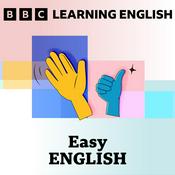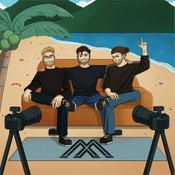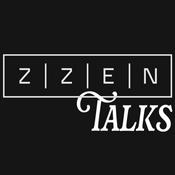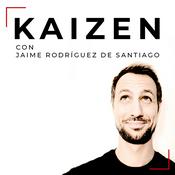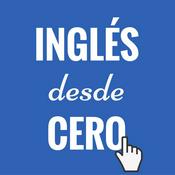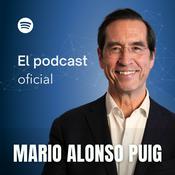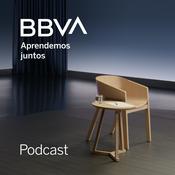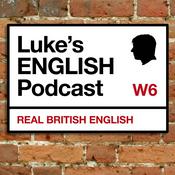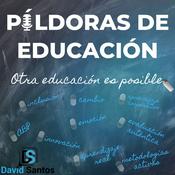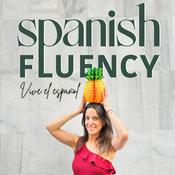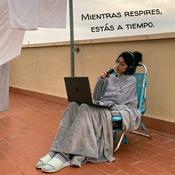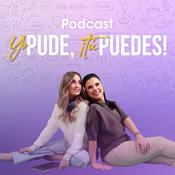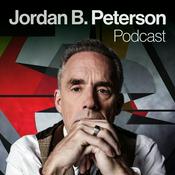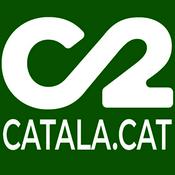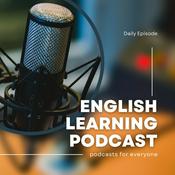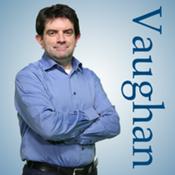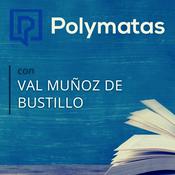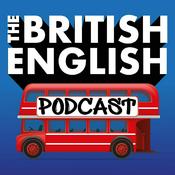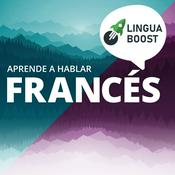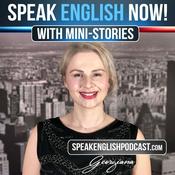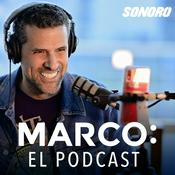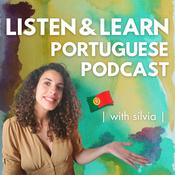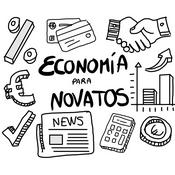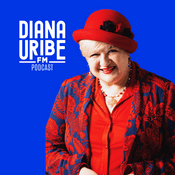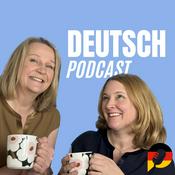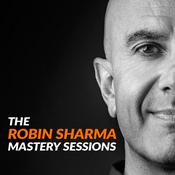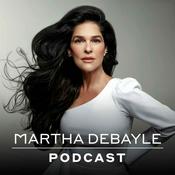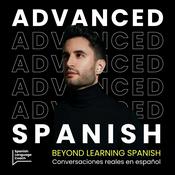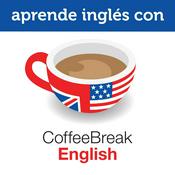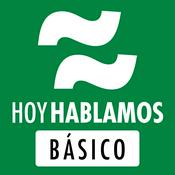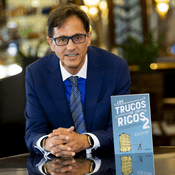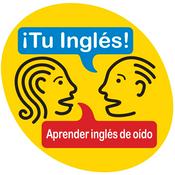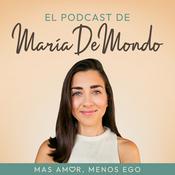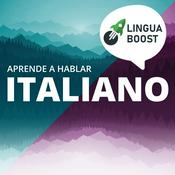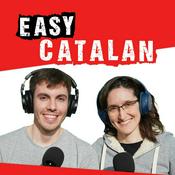177 episodios
S10 E9: From research to reality: Breaking down comprehension barriers, with Phil Capin, Ph.D.
14/1/2026 | 53 minIn this episode of Science of Reading: The Podcast, Susan Lambert is joined by Phil Capin, Ph.D., assistant professor of education at the Harvard Graduate School of Education. They explore why recommended reading comprehension practices aren't widely implemented in schools, and what educators can do to change that. Together, they also discuss how knowledge building is foundational to reading comprehension, how writing is a powerful tool in supporting reading comprehension, and why we should structure reading instruction based on what happens before, during, and after reading.
Show notes:
Register for our Science of Reading Symposium: http://www.amplify.com/comprehensionsymposium
Submit your questions on comprehension: http://www.amplify.com/sor-mailbag
Access free resources at our professional learning page: https://amplify.com/science-of-reading/professional-learning/
Connect with Phil Capin: https://www.linkedin.com/in/phil-capin-02105550
Read Hugh Catts' article, "Rethinking How to Promote Reading Comprehension": https://files.eric.ed.gov/fulltext/EJ1322088.pdf
Read Catherine Snow's article, "Reading for Understanding": https://www.rand.org/pubs/monograph_reports/MR1465.html
Learn more about Dolores Durkin's report, "What Classroom Observations Reveal about Reading Comprehension Instruction": https://eric.ed.gov/?id=ED162259
Read How People Learn: https://www.nationalacademies.org/read/9853/chapter/1
Listen to the podcast episode with Nancy Hennessy: https://podcasts.apple.com/us/podcast/s3-09-deconstructing-the-rope-vocabulary-with/id1483513974?i=1000520380191
Listen to Season 2 of Amplify's Beyond My Years podcast: http://at.amplify.com/bmy
Join our Facebook community: https://www.facebook.com/groups/scienceofreading
Quotes:
"We've underestimated the value of writing in supporting reading comprehension." —Phil Capin, Ph.D.
"Reading and writing rely on a lot of the same language processes, and writing supports the consolidation of knowledge." —Phil Capin, Ph.D.
"Students should engage with meaningful problems, and they should have a reason for learning." —Phil Capin, Ph.D.
Timestamps*:
00:00 Introduction
04:00 Phil Capin's career path
08:00 Reading comprehension is the byproduct of a constellation of competencies
11:00 The complexity of comprehension
16:00 Dolores Durkin's findings on comprehension testing vs. teaching
22:00 Students should engage with meaningful problems
24:00 Comprehension instruction is organized by before, during, and after reading.
27:00 The value of writing for comprehension
31:00 Where comprehension strategies could be helpful
39:00 How much time should teachers dedicate to strategy instruction?
41:00 The strongest predictor of whether you're going to understand the text is the knowledge you bring.
46:00 Every teacher is a reading teacher
48:00 Closing thoughts
*Timestamps are approximate, rounded to nearest minute- In this episode of Science of Reading: The Podcast, Susan Lambert is joined by educational consultant Nancy Chapel Eberhardt, who explains why focusing on syntax at the sentence level is just as important for comprehension as word-level decoding. Together, Nancy and Susan also discuss how syntax helps students process meaning while reading, why we should start early and teach syntax to students from the beginning, and a more functional approach to syntax.
Show notes:
Register to join our Science of Comprehension Symposium.
Submit your questions on comprehension!
Connect with Nancy on LinkedIn.
Read Nancy’s article “Syntax: Somewhere Between the Words and Text.”
Learn more about Nancy’s book Syntax: Knowledge to Practice.
Learn more about the Syntax online course.
Listen to last week’s syntax-focused episode, with Julie Van Dyke, Ph.D.
Listen to the podcast the episode with Nancy Hennessy, M.Ed.
Read Maryellen MacDonald’s article “Book Language: What It Is, How Children Can ‘Get It’.”
Listen to Season 2 of Amplify’s Beyond My Years podcast.
Join our community Facebook group.
Connect with Susan Lambert.
Quotes:
"Syntax is somewhere between the individual words and the meaning of the text. It's the processing piece that's going on there." —Nancy Chapel Eberhardt
"Syntax isn't just for older kids anymore. Syntax is really something that we can start promoting, developing, encouraging, embracing from the beginning." —Nancy Chapel Eberhardt
"I actually think that as teachers embrace this idea of syntax, they're going to have a lot of fun with it. It's way more fun to talk about the meanings of words than to just decode them." —Nancy Chapel Eberhardt
Timestamps:
00:00 Introduction: Diving deeper into syntax, with Nancy Chapel Eberhardt
08:00 Comprehension is lifting the meaning out of text
11:00 Sentence-level abilities make as large a contribution as word reading for comprehension
14:00 The difference between syntax and grammar
20:00 Why syntactical knowledge is so helpful in the comprehension process
24:00 Prosody helps us with our fluency with reading
30:00 Syntax is somewhere between the individual words and the meaning of the text
33:00 We've gone through several generations of students who aren't being taught syntax
37:00 It's more fun to talk about the meanings of words
39:00 Start teaching syntax by thinking about the most essential build block
45:00 Connecting words are meaningless in the absence of other words
53:00 By spending more time instructing on syntax, we will reach more of our students.
56:00 Closing: Syntax is something we can start promoting, developing, encouraging, and embracing from the beginning.
*Timestamps are approximate, rounded to nearest minute - In this episode of Science of Reading: The Podcast, Susan Lambert is joined by research scientist and professor Julie Van Dyke, Ph.D., who explains why syntax instruction may be the missing piece in our mission to improve comprehension outcomes for all students. Together, Julie and Susan discuss why syntax is the part of the language system that matters for comprehension, how the same systematicity and rule governance that you find in teaching phonics also exists in syntax, and how explicit syntax instruction could be the next breakthrough in evidence-based literacy education.
Show notes:
Register to join our Science of Comprehension Symposium: amplify.com/comprehensionsymposium
Submit your questions on comprehension!
Connect with Julie Van Dyke on LinkedIn.
Learn more about Julie Van Dyke's research on her website.
Watch an interview about Syntax Comes First: Understanding How Syntax Is the Backbone of Comprehension
Watch Dr. Van Dyke's webinar: Finding the Missing Link in Reading Comprehension.
Access recent Perspectives issues via the IDA.
Listen to Season 2 of Amplify's Beyond My Years podcast.
Join our community Facebook group.
Connect with Susan Lambert.
Quotes:
"In English, syntax is word order. Syntax is the relationship between the entities in a sentence." —Julie Van Dyke, Ph.D.
"If you want to increase comprehension, you need to be explicit in syntax because that's the part of the language system that matters for comprehension." —Julie Van Dyke, Ph.D.
"Comprehension is the glue between the words. It's the process of gluing the words together, each word as you go." —Julie Van Dyke, Ph.D.
Episode Timestamps:
00:00 Introduction: Syntax and comprehension with Julie Van Dyke, Ph.D.
06:00 Nervousness around syntax instruction
11:00 Comprehension is the glue between words
15:00 The difference between grammar and syntax
19:00 How the brain learns language and how syntax is related to that learning
24:00 Oral language is much less complicated than written language
30:00 Explaining regressions
33:00 The need to be explicit in syntax instruction
36:00 How we develop fluency as syntax
44:00 Closing thoughts: Syntax can move the needle on the nation's report card
*Timestamps are approximate, rounded to nearest minute - In this episode of Science of Reading: The Podcast, Susan Lambert is joined by Affiliated Scholar at the Stern Center for Language and Learning, Melissa Farrall, Ph.D., to discuss understanding assessment. Melissa explains why it's beneficial for every educator to understand the fundamentals of assessment, especially comprehension assessment. Together, Melissa and Susan discuss the relationship between reading comprehension and language comprehension, why reading comprehension can be challenging to assess, and how, in a perfect world, educators would be trained both in the Science of Reading and assessment.
Show notes:
Submit your questions on comprehension!
Access free, high-quality resources at our brand new, companion professional learning page.
Connect with Melissa Farrall on LinkedIn.
Learn more about Chall's Stages of Reading Development.
Read Reading Assessment: Linking Language, Literacy, and Cognition
Read The Academic Achievement Challenge: What Really Works in the Classroom
Listen to Season 2 of Amplify's Beyond My Years podcast.
Join our community Facebook group.
Connect with Susan Lambert.
Quotes:
"My view of reading comprehension is that it is thinking guided by print." —Melissa Farrall, Ph.D.
"If we supplement our evaluation with measures of listening comprehension, we can then get a sense of an individual's ability to make meaning." —Melissa Farrall, Ph.D.
"In a perfect world, we would have not just evaluators, but educators who are trained both in the Science of Reading and in assessment so that we can all sit at the same table and participate." —Melissa Farrall, Ph.D.
Episode Timestamps:
00:00 Introduction: Exploring comprehension assessment, with Melissa Farrall
07:00 The legacy of Jean Chall's research on the developmental stages of reading
10:00 "Reading Assessment: Linking Language, Literacy, and Cognition"
17:00 Comprehension is thinking guided by print
21:00 Different ways of assessing reading comprehension
27:00 Kintsch's construction-integration model
30:00 Word recognition
33:00 Reading comprehension is not easily quantified
38:00 How background knowledge affect the meaning-making process
41:00 The two modalities of language comprehension
45:00 How today's educators might think differently about comprehension instruction
48:00 Closing thoughts
*Timestamps are approximate, rounded to nearest minute - In this episode of Science of Reading: The Podcast, Susan Lambert is joined by University of Oregon College of Education Professor and Ann Swindells Chair in Education Gina Biancarosa, Ed.D., to explore how best to assess for comprehension. Gina elaborates on her extensive work developing more precise and informative measurements of reading comprehension and discusses think-aloud research, demonstrating how to infer for coherence, and examining how students who are struggling with comprehension tend to rely too heavily on making inferences or paraphrasing.
Show notes:
Submit your questions on comprehension!
Access free, high-quality resources at our brand new, companion professional learning page.
Connect with Gina on LinkedIn.
Read “Diagnostic and Instructionally Relevant Measurement of Reading Comprehension”
Watch Dr. Biancarosa's recent Amplify webinar appearance: Where and How to Measure Comprehension to Drive Improvement
Listen to Season 2 of Amplify’s Beyond My Years podcast.
Join our community Facebook group.
Connect with Susan Lambert.
Quotes:
"A lot of what we know about reading comprehension comes from think-alouds where you ask someone to tell you what they're thinking as they read." —Gina Biancarosa, Ed.D
"To model reading comprehension, [try] thinking aloud in front of a classroom of students in a way that is instructive for them, and also authentic to the reading process." —Gina Biancarosa, Ed.D.
"Students are making causal inferences in their daily lives, when they watch movies, and when they're hearing stories. And so what we're really trying to do is get them to generalize these behaviors that they engage in outside of the task of reading, during reading." —Gina Biancarosa, Ed.D.
Episode Timestamps:
02:00 Introduction: Gina Biancarosa, Ed.D. and comprehension assessment
08:00 How do we assess comprehension?
14:00 Think-aloud research
21:00 MOCCA (Multiple-Choice Online Causal Comprehension Assessment)
24:00 Causal coherence
30:00 Paraphrasers and elaborators
33:00 Comprehension assessment research
39:00 Professional development and comprehension assessment
42:00 Closing thoughts
*Timestamps are approximate, rounded to nearest minute
Más podcasts de Educación
Podcasts a la moda de Educación
Acerca de Science of Reading: The Podcast
Science of Reading: The Podcast will deliver the latest insights from researchers and practitioners in early reading. Via a conversational approach, each episode explores a timely topic related to the science of reading.
Sitio web del podcastEscucha Science of Reading: The Podcast, The Mel Robbins Podcast y muchos más podcasts de todo el mundo con la aplicación de radio.es
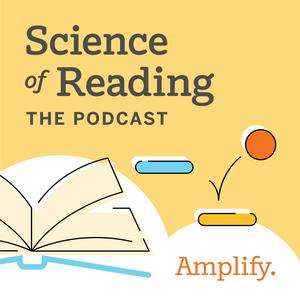
Descarga la app gratuita: radio.es
- Añadir radios y podcasts a favoritos
- Transmisión por Wi-Fi y Bluetooth
- Carplay & Android Auto compatible
- Muchas otras funciones de la app
Descarga la app gratuita: radio.es
- Añadir radios y podcasts a favoritos
- Transmisión por Wi-Fi y Bluetooth
- Carplay & Android Auto compatible
- Muchas otras funciones de la app


Science of Reading: The Podcast
Escanea el código,
Descarga la app,
Escucha.
Descarga la app,
Escucha.


